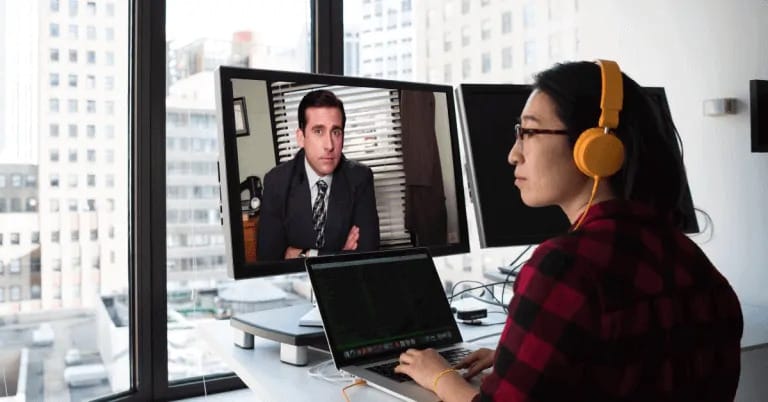- RoadMap Network
- Posts
- The Bold Moves Winning Professionals Are Making to Stand Out
The Bold Moves Winning Professionals Are Making to Stand Out
Plus: Tech Stocks Boom & TV at Work
Welcome to RoadMap!
RoadMap is a private network for recent college grads embarking on their job search and early career journey.
Discover how RoadMap can help you navigate your ideal career path by visiting our website today!
Make Bold Moves!

Embrace your individuality and make an impact! 📊
As recent grads step into the job market or start their first roles, the old ways of applying and growing aren’t cutting it.
To really stand out, you may need to take bold steps that show off who you are and what you’re capable of, letting your true self shine through in a fresh, authentic way.
Here are some ways to make that happen:
Digital Portfolios: If you're just starting out, putting together an online portfolio is a powerful way to showcase your best work. Whether it's writing samples, data analysis, or product design, an online portfolio lets you tell your story on your terms. It’s your chance to show potential employers what makes you unique and how your skills can make an impact.
Social Media Networking: Platforms like LinkedIn are your go-to for connecting with people in your industry. By joining conversations and sharing your insights, you’re not just building relationships — you’re opening doors to new opportunities. Whether you're on the hunt for your next job or aiming to grow in your current role, these connections can make all the difference.
This shift is all about owning who you are. Every portfolio view and social media post is a chance to highlight your passions and strengths.
In the end, these bold moves are changing the way careers are built. Showing that being innovative can be just as important as having a degree.
Generational Trading

Buying tech stocks unites young & old! 📈
The investment landscape is buzzing as digital platforms like Robinhood redefine the market, creating an intriguing trend: tech stocks are gaining traction not only among young investors but also older generations.
A recent eToro survey found that 68% of Gen Z investors (ages 12-26) increased their tech stock holdings this past quarter, while 55% of Silent Generation investors (ages 80 and older) joined in, according to MarketWatch.
It’s remarkable to see these two distinct age groups align in their investment strategies, particularly as other generations like Millennials (ages 27-42), Gen X (ages 43-60), and Baby Boomers (ages 61-79) are stepping back from tech investments.
This shift marks a unification of diverse groups around tech investments, and for recent grads, it’s more than just a passing trend. It’s an exciting opportunity to explore careers in the tech industry, where stock growth often signals increased hiring and expanded job opportunities.
Overall, this paints a bright future for those eager to break into tech, suggesting that a career in this field could offer both stability and growth potential.
TV Time at Work

Workplace leisure activities are becoming more common. 📺
How much time do employees spend glued to screens during work hours?
A recent study reveals that many workers spend nearly an hour each day watching TV, costing businesses an eye-popping $8,241 per employee annually. This trend raises serious concerns about productivity, especially since disengaged workers are estimated to cost U.S. companies up to $550 billion per year, according to a Newsweek report.
As pressure builds in today’s fast-paced work environment, more employees are taking personal time during “traditional” work hours. This behavior highlights the need for companies to rethink their approach to productivity and prioritize a culture that supports individuality and personal needs.
With smartphones and laptops blurring the lines between work and downtime, the habit of indulging in entertainment during the day has become almost instinctual. Ultimately, organizations that fail to address this shift may be overlooking a key issue: technology.
The "always on" nature of work has also led to an "always on" approach to leisure. Without a strategy to combat disengagement, the cost of lost productivity will likely continue to rise.
